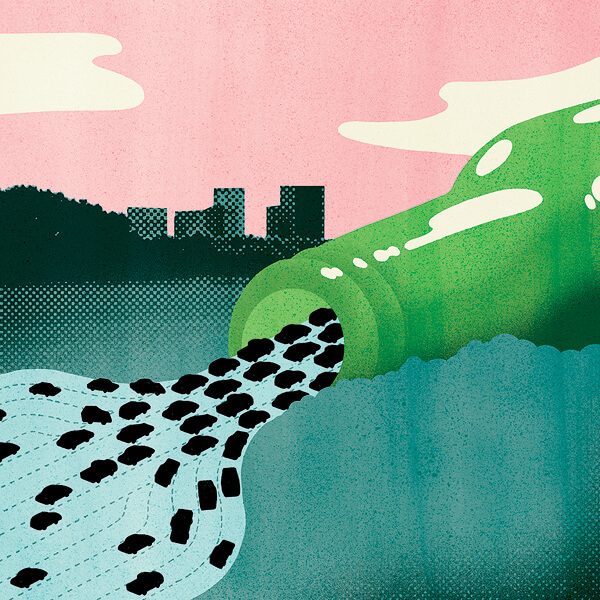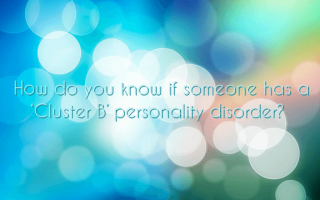Alcoholic family members support and enable problem drinkers.
Whether they are Dry Drunks or active drinkers, it makes no difference. People who are born and raised around alcohol never seem to consider the very real fact it plays a majorly toxic role in human cultural history — or that they, themselves, are likely to have suffered abuse at the hands of drunken narcissistic people and their toxic enablers since they were brought into the world as young infants.
If a person visits their home for a social occasion or elects to spend time with one of them recreationally, any person who is around them will be offered alcohol and encouraged to drink to their heart’s content.
It is part of the “misery loves company” power and control dynamic those who are socially impressed by the substance all use to ensure that they will never be alone. Being alone, for a person addicted to toxic thinking, alcohol, or a controlled substance is never their “thing”.
Yes, misery loves company (and partying till people barf, pass out, or end up holding on to the edge of a bed or toilet rim for dear life while the inside of their head spins, too, apparently).
As long as someone else can be made fun of or ridiculed for having an inability to handle liquor, wine, or beer — or they can be tricked into buying rounds of drinks — there will always be a drunkard touting the glory of booze, making themselves look like an idiot to any non-drinker while they socially encourage toxic habit patterns related to alcohol use and abuse by friends and family.
Alcoholic family members are those who have been raised believing that liquor is simply part of human culture.
While it has always been a factor in most societies’ cultural heritages, causing or enabling problem drinking has never been the goal of hosts offering wine, beer, or distilled spirits.
Long before things like water purification plants or bottled beverages existed, men and women worldwide — presumably seeking safe fluid drinking supply — learned how to make beers, wines, and hard liquor.
Served at mealtimes, carried in canteen-like vessels when traveling, and offered up for ceremonial occasions, alcohol has always been part of social celebrations in even the most roughneck and primitive of all civilizations.
Alcohol, as a medicinal substance, was given to teething infants.
Grandma might have elected to rub something like rum on the gums of a teething child then had a nip to help herself ease the pain and discomfort of something like arthritis.
The goal of easing pain and promoting restful sleep was likely in the forefront of her mind when she did it, too — not seeing how low shorty could go when gyrating on a night club dance floor or how cool her grandbaby Billy Bob might look while fist fighting with his cousin or brother in the back yard over something as simple as who is the best griller at their next family get together of her grandsons at present.
Someone who carried a flask of brandy on a ski trip or long journey by horse and buggy was not motivated by the same things as a person who refuses to give up their car keys at the end of the family dinner party when more than a few bottles of wine were consumed throughout a few short hour duration.
A Saint Bernard dog who brought brandy to an injured skier or a person who was trapped in their mountain home by an avalanche in the Swiss Alps is not likely to have been encouraging a person to get completely lit, then take their car out to drag race against other drunk friends while laughing.
Alcohol use — when the substance is treated with respect, care, and caution — can be a helpful thing.
Not only did was it used to keep humans safe from contaminated water sources while still (arguably) hydrating them, back in the day it helped many an injured, sick, or wounded person fall asleep.
Problem drinkers are those who turn to the use of alcohol to cope with psychological, emotional, or even physical stressors without considering the effects of their habits on themselves and those who encounter them. Problem drinkers pick fights at places like bars, festivals, and backyard dinner parties with alarming regularity.
You know the people we’re talking about.
- The beer drinker who starts hooting and hollering loudly, making everyone around them look while they do something stupid.
- Or the wine drinking Cerebral Narcissist who waxes poetic before turning sullen and verbally choosing to assail everyone socially, politically, and spiritually at a fancy dinner party.
- Then there is always that woman (or girl) who gets drunk and starts stripping off her clothes in public — or hitting on everyone (man, woman, child, married person, available single, or impressionable teenager).
- And, of course, there is the rum and coke or tequila drinking LOSER who simply cannot stop talking about how popular and special he was back at Polk High school — the one who starts off nice but as the night progresses starts to slur and ends up falling down drunk in a parking lot or on the dance floor, yelling loudly and name-calling or swearing at everybody.
Each and every one of the aforementioned personality types is likely to come from a long line of problem drinkers or alcoholics. How do you know?
The answer is simple. Normal people are NEVER socially impressed by people who engage in toxic thinking or abusive behavior.
You see, problem drinkers don’t have to be alcoholics but all alcoholics are problem drinkers.
Once a person who has a drinking problem has the opportunity to become a parent, they all tend to raise their offspring in such a way that the children grow up thinking doing things like serving wine with every meal or having a cocktail to celebrate anything from ending the workday to a wedding or a funeral is the proper way to memorialize an occasion.
Young children raised in the 21st century who are being shown alcohol daily at home are simply likely to grow up never questioning whether or not the behavior is normal.
Adult children of alcoholics who grew up in the 20th century are today’s problem drinkers.
Parents who expose their children to unhealthy levels of alcohol use at the youngest age and promote drinking throughout the course of a child’s most important years of psychological and social development are guilty of an extreme form of Narcissistic Abuse — but (sadly) it’s a type readily overlooked and enabled by OTHER people from families that also have been under the proverbial influence of alcoholic thinkers and problem drinkers.
Kids who watch mama and daddy get sotted at 5 o’clock happy hour or who head out to party at the local bar or nightclub every weekend grow up to be children who idolize people with the same patterns.
They are the same kids who get drunk at parties with their friends in high school or who start stealing alcohol from mom and dad’s liquor cabinet when they are still in middle school.
Bottom line, even if a child of problem drinkers grows up and stays sober, the chances of them going home for the holidays or showing up to Sunday dinner at the ‘rents house and being offered booze are astronomical.
If mom and dad are drinkers, they will almost always take it as an insult when and if someone refuses to have a cocktail with them — especially their own children.
Those kids who elect to avoid drinking are oftentimes horribly ridiculed by their parents and siblings who drink.
Finding themselves treated like black sheep and social pariahs for not drinking, they are demeaned, insulted, called “tea totalers”, and both publically as well as privately harassed.
For adult kids who did not develop problem drinking habits when they grew up, watching their family enable and support their own problem drinkers’ use of alcohol can be truly traumatizing.
But for children of alcoholic families — even children who only have only one parent, grandparent, aunt, uncle, child, or sibling who is an addict — having to spend time around their toxic family units in any way can be incredibly traumatizing.
According to the National Council on Alcoholism and Drug Dependence, “The use and abuse of alcohol and drugs are serious issues that should not be ignored or minimized.
If left untreated, use and abuse can develop into drug dependence or alcoholism. As a result, it is important to recognize the signs and symptoms of alcohol and drug abuse early.”
Some of the red flags and warning signs people are enmeshed with problem drinkers include having family members who exhibit the following personality traits, drunk lifestyle habits, or alcohol abuse-related health issues and symptom patterns:
- Temporary blackouts or memory loss.
- Recurrent arguments or fights with family members or friends as well as irritability, depression, or mood swings.
- Continuing use of alcohol to relax, to cheer up, to sleep, to deal with problems, or to feel “normal.”
- Headache, anxiety, insomnia, nausea, or other unpleasant symptoms when one stops drinking.
- Flushed skin and broken capillaries on the face; a husky voice; trembling hands; bloody or black/tarry stools or vomiting blood; chronic diarrhea.
- Drinking alone, in the mornings, or in secret.
More problematic signs of serious alcoholism include but are not limited to the following clues:
- Loss of Control: Drinking or drugging more than a person wants to, for longer than they intended, or despite telling themselves that they wouldn’t do it this time.
- Neglecting Other Activities: Spending less time on activities that used to be important (hanging out with family and friends, exercising, pursuing hobbies or other interests) because of the use of alcohol or drugs; drop in attendance and performance at work or school.
- Risk Taking: More likely to take serious risks in order to obtain one’s drug of choice.
- Relationship Issues: People struggling with addiction are known to act out against those closest to them, particularly if someone is attempting to address their substance problems; complaints from co-workers, supervisors, teachers or classmates.
- Secrecy: Going out of one’s way to hide the amount of drugs or alcohol consumed or one’s activities when drinking or drugging; unexplained injuries or accidents.
- Changing Appearance: Serious changes or deterioration in hygiene or physical appearance – lack of showering, slovenly appearance, unclean clothes.
- Family History: A family history of addiction can dramatically increase one’s predisposition to substance abuse.
- Tolerance: Over time, a person’s body adapts to a substance to the point that they need more and more of it in order to have the same reaction.
- Withdrawal: As the effect of the alcohol or drugs wear off the person may experience symptoms such as: anxiety or jumpiness; shakiness or trembling; sweating, nausea and vomiting, insomnia, depression, irritability, fatigue or loss of appetite and headaches.
- Continued Use Despite Negative Consequences: Even though it is causing problems (on the job, in relationships, for one’s health), a person continues drinking and drugging.
Understand if you come from a family where alcohol was readily available in your home that there’s a chance that one or more of the people in your family were or are by nature problem drinkers.
There’s also a high chance that one or more offspring in any family unit where the grandparents (especially grandfather’s) imbibed routinely that the alcohol gene was passed biologically down.
If one or more of your grandparents were alcoholics or genetically you come from a group of people who historically have a problem drinking alcohol without becoming addicted that it’s much harder to stop drinking (most likely) that for other people who start.
Not only will social pressure incline you to think that drinking is normal, but your body is also likely to trick you into believing that having just one more drink won’t hurt.
But here’s the deal — some people, even if they only drink once or twice a year — can truly be considered PROBLEM DRINKERS.
And worse — people who are NOT drinking at all can still behave psychologically in ways that make them resemble drunk people in their character, personal affectations, and nature.
Dry Drunks, or people who have stopped drinking but who fail to do the self-examination necessary to get rid of toxic beliefs and “stinking thinking” alkie thought patterns relating to egocentric thinking and entitlement issues, can be just as damaging to themselves and other people socially or emotionally than the drunk guy who called you a whore for not sleeping around and shoved you into an actual bar.
When someone is drunk and does or says stupid things that hurt, humiliate, undermine, embarrass, or socially traumatize others, typically once they sober up they deny having done it or refuse to take responsibility for their actions and socially aggressive and damaging behaviors.
But victims of such Narcissistic Abuse who are taught from early childhood forward to overlook such people’s bad behavior when they are drinking are taught to enable.
Enablers are people who by their own free will choice decide to overlook and excuse social abuse.
They are the same children who cry to their mother after drunk daddy beats or rapes them in a drunken stupor but then say that everything is alright because daddy, “didn’t mean it.”
Enablers are people who know that someone attending a dinner party has a really tough time being nice after they have a couple of cocktails in them — but they crack open wine and pour everyone at the dinner table a glass nonetheless.
Then they keep refilling that person’s glass when and if their spouse is not looking, telling the person who has a propensity for being wildly abusive physically and verbally to their mate or kids in private that if they want to drink, “it’s their body and their right.”
Enablers are parents and grandparents and siblings and aunts and uncles and cousins.
They are that guy who lives around the corner or that woman who does not have any real family or friends of her own but keeps getting invited to family cookouts or sit-down dinners.
They are any person who sits back and encourages the use of alcohol socially without regard to the very real, potentially life-threatening or relationship-ending consequences of alcohol’s social use.
And the Abuser — yes, the ABUSER — is any person hosting a party who fails to encourage party guests to drink responsibly.
Keeping a taxi service number readily at hand or freeing up space in a guest bedroom or on a couch should always be offered to a person who has been drinking — not in a way that the offer to let a person get home safely or to sleep it off and then take their own vehicle home from a gathering could be turned down, either.
Making a drunk or heavy drinking person an offer that they cannot refuse is important with regard to transportation safety.
Having anyone who drinks at a party be required to turn in their car keys before they ever have their first sip of wine or a cocktail can truly save the lives of friends, strangers, and family.
Smart party hosts who elect to keep a “keyboard” can easily take a little piece of pull-off painters tape or some other tag marker for each key set when keys are turned in, noting the time the first drink was poured right on the key ring.
Then, when and if a party guest decides to drive themselves and their own friends or family members home, it’s easier to determine how long it’s prudent to make them wait before doing so.
Noting that drinking alcohol causes all sorts of bad tempers to flare and bad judgment to be made, letting people sober up before they hit the road is smart.
But it’s even smarter to let people sober up before turning their drunk and irrationally self-indulgent asses on people like roommates, young children living at home, or mates.
Noting that it takes roughly an 8 oz. glass of water (or 12) and a full hour minimum for the average liver to process one serving of alcohol, having a coffee and water bar seating area at any party — or turning off the tap for last call and electing to serve dessert with tea or coffee long before a dinner party’s scheduled end time — can truly have a pro-social impact on even the hardest drinking of all families.
Be the change you want to see when hosting any special event where beer, wine, or liquor are going to be served in order to prevent party guests from driving drunk, getting a DUI or DWI, or from acting drunk and abusive while using alcohol consumption and an excuse to verbally, mentally, psychologically, physically, or sexually abuse other people who live with them or their family.
And don’t hesitate to inform someone — drunk or sober — when and if their behavior socially is making people around them uncomfortable.
Granted, the more toxic the thinker the more likely they are to get enraged at the suggestion that their behavior when they drink is hurtful or that drinking frequently or in excess is considered problematic behavior, but quite frankly screw them.
Alcohol use, in moderation for medicinal reasons or to have a few sips on a special occasion, is reasonable.
Drinking daily, weekly on the weekend, or getting blitzed out of your gourd as a grown adult claiming to be recreating is juvenile, immature, displays an appalling lack of psychological or emotional insight, and epitomizes narcissistic thinking styles promoting grandiosity and egocentrism.
Family members who support or encourage problem drinkers are Enablers as well as Abusers, plain and simple.
Blood relatives or not, toxic people from alcoholic family units should be avoided when and if at all possible, noting that nothing positive typically comes from any long term or short term relationship with a party person, binge anything, those who tend to drink in private, or even a friendly but social heavy drinker.
Have a cocktail or a glass of wine once in a while if and when you do not become verbally abusive, irrational, or combative with others or put your biological system into a crisis that provokes nausea, headaches, or leaves you feeling seriously terrible or even a little bit hungover afterward.
After all, this is not ancient times and clean drinking water is (after all) typically — at least in most modern cultures — readily available instead of alcohol.
There is no need to turn drinking any form of liquor into anything other than an occasional passing fancy to indulge in a sip rather than insisting it is socially appropriate to poison your mind and body for recreational purposes as a public display of socially condoned and toxically nurtured habit.





